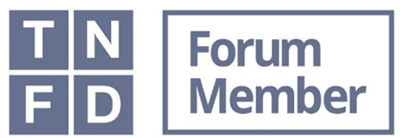Furukawa Electric Group has declared its endorsement of the Task Force on Nature-related Financial Disclosures (TNFD), and joined the TNFD Forum, which supports this activity in November 2023. We will continue to prepare for nature-related disclosures in line with the TNFD recommendations, and will work to strengthen our relationships of trust with all of our stakeholders.

In our Environmental Vision 2050, we have set out to minimize the impact on the ecosystem through value chain management, including raw materials, as a contribution to society in harmony with nature. Recognizing the impacts of our business activities on biodiversity, we started initiatives not only on climate change but also on biodiversity. The characteristics of biological resources and water vary depending on the region. Therefore, we conducted a trial in reference to the LEAP (Locate, Evaluate, Assess, Prepare) approach, etc., as shown in the TNFD Framework.
The “LEAP Approach” is an integrated approach to evaluate and manage nature-related issues developed by TNFD. There are four phases of evaluation as mentioned below. We used the recommended TNFD tools for the evaluation.

* Furukawa Electric Group refers to our suppliers as “partners” with whom we co-create value.
At present, our assessment of nature-related risks is limited to a simple examination. Since the characteristics of each region differ, we will consider examining the actual conditions of each region and scenario analysis in the future. We will also proceed with the investigation of the impact of our business activities on the natural environment. Alongside these detailed investigations, we will work to enhance the content of our disclosures of the 14 items based on the TNFD recommendations.